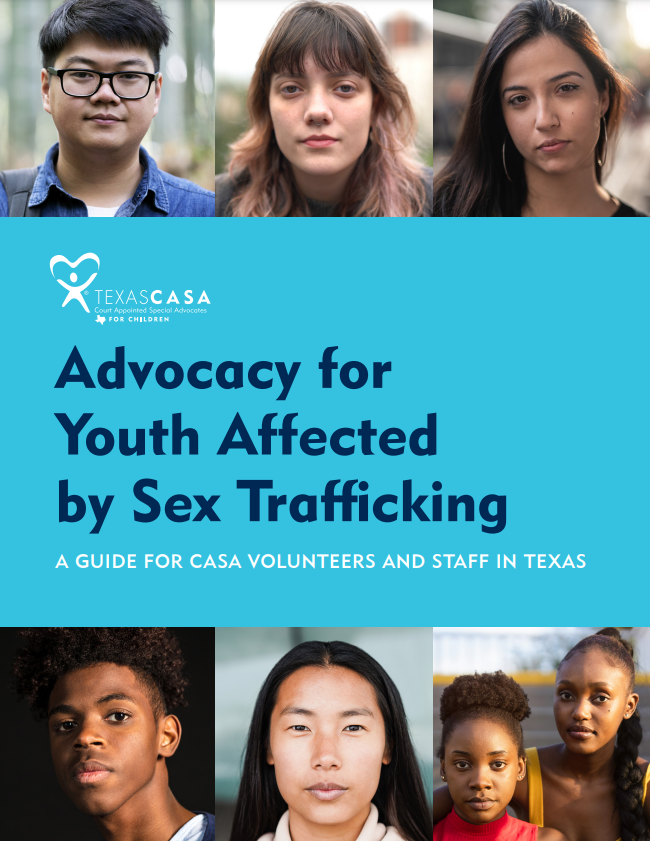Anti-Child Trafficking (ACT)
What is CASA ACT?
Texas holds the unenviable position of ranking second in the nation for incoming tips on child sex trafficking. These statistics are not mere numbers; they represent lives in jeopardy, futures uncertain and innocence at risk. To battle this trajectory, Texas CASA is taking proactive steps with the CASA Anti-Child Trafficking framework. Bearing the acronym ACT, this initiative is designed to instill a call to action to “see something, say something,” and crucially, do something — to ACT.
Youth who have been affected by trafficking in foster care need CASA volunteers who are well-trained, connected and prepared to support their specialized needs. From identification of at-risk youth, to advocacy for those who have been harmed, CASA programs and volunteers can, and must ACT. Texas CASA provides strategies and recommendations to the local CASA programs to be active partners in the anti-child trafficking and exploitation movement within their own communities.
UNDERSTANDING YOUTH AFFECTED BY SEX TRAFFICKING
Experiences of Youth Affected by Sex Trafficking: Survivors’ Perspectives
CASA Anti-Child Trafficking (ACT) — Stages of Change
A Guide for CASA Volunteers & Staff in Texas
Texas CASA is pleased to share Advocacy for Youth Affected by Sex Trafficking, a new resource and guidebook for CASA volunteers and staff on best advocacy practices for young people impacted by sex trafficking. The CASA network of caring community members appointed as volunteers, and the local programs who support them, are an essential part of advocacy for youth in foster care who are affected by child sex trafficking. These youth need CASA volunteers who are well-trained, connected and prepared to support their specialized needs. By taking the steps to learn more, you are joining an effort to create a linked network of services across the state of Texas.

